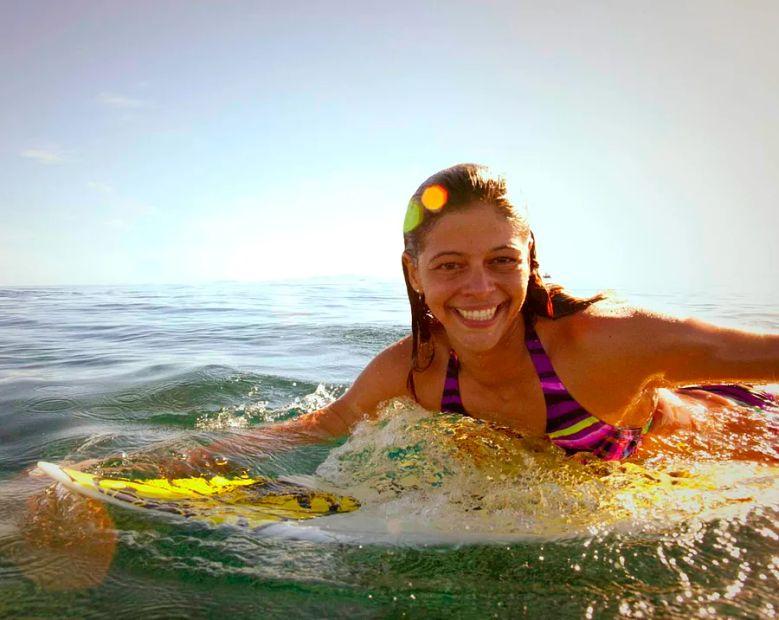Essential insights before visiting Fiji

Comprising 333 islands in this South Pacific paradise, there’s a lifetime of exploration waiting in Fiji. Having lived in Suva, the capital, for the past six years, I’ve navigated many travel blunders and cultural missteps to help you avoid them.
From selecting the right island to understanding kava etiquette and packing must-haves, here are the essential dos and don’ts for traveling to Fiji.
 Investigate which islands offer the perfect blend of experiences for your journey © EAGiven / Getty Images
Investigate which islands offer the perfect blend of experiences for your journey © EAGiven / Getty Images1. What should I know before traveling to Fiji?
Each island in Fiji is unique, so it’s beneficial to research the major ones before your visit.
If time is short and you want to enjoy some of the country’s finest beaches, focus on island-hopping between the Yasawa and Mamanuca Islands. For breathtaking waterfalls and vibrant coral reefs, head to Taveuni. Viti Levu, the largest island, is where you’ll find Suva, the capital, along with some of the best-value resorts, cultural experiences, hiking opportunities, and the majority of Fiji’s population.
For a truly unique experience, consider Beqa, renowned for its firewalkers and deep cultural ties to the bull sharks that swim in its surrounding waters. Vanua Levu, Fiji’s second largest island, is home to the charming town of Savusavu, a hub for scuba diving, freediving, and a relaxed lifestyle.
If you’re looking to indulge in a luxurious five-star experience, choose from private island resorts that can be reached by helicopter, seaplane, or boat, offering an exclusive atmosphere. Top picks include Kokomo Private Island Fiji, Vomo Island Resort, and Castaway Island Resort.
2. Opt for small resorts and homestays for an authentic Fijian experience
Generally, the larger the resort, the less authentic your Fijian experience might be. Most international chain hotels are situated on Denarau Island, a manmade destination that compensates for its unimpressive beach with an abundance of pools, bars, and dining options.
Smaller resorts and homestays often feature locally crafted art, provide guided tours to nearby villages, and serve traditional Fijian cuisine. Once their shifts end, staff members are likely to invite you to enjoy a few rounds of kava. For a more immersive experience, Finding Islands Tours offers cultural trips on land and sea to teach you about traditional lifestyles and fascinating aspects of Fiji.
 Outdoor activities depend on the weather; plan ahead in case you need to adjust your schedule © Westend61 / Getty Images
Outdoor activities depend on the weather; plan ahead in case you need to adjust your schedule © Westend61 / Getty Images3. Plan your outdoor activities for the start of your trip
Tropical living means you might face rain or clear skies (or both) on any given day, regardless of the forecast. Schedule your hikes, scuba diving, snorkeling tours, sailing adventures, and other outdoor activities at the beginning of your stay. This way, you’ll have the flexibility to reschedule if weather conditions disrupt your plans.
4. Stay for at least a week – longer is even better
If you intend to explore just one or two regions of Fiji, a week is sufficient to enjoy a mix of sightseeing and relaxation. However, if you wish to see more, be prepared to spend at least half a day traveling between islands. You can’t cover everything in one visit, so it’s wise to slow down and choose a few key locations. If you prefer to maximize your experiences, consider taking day trips from your base rather than frequently changing accommodations.
5. Embrace bold floral patterns and vibrant colors in your packing
Feel free to unpack that floral button-up shirt or dress tucked away in your closet. Fijians love to wear bright, bold colors, often adorned with Pacific Island motifs or tropical prints. A stylish pair of sandals and a vibrant outfit will take you seamlessly from laid-back beach bars to upscale dining and the streets of Suva. As long as your outfit covers your shoulders and knees, it will also be appropriate for village and church visits.
6. Buses and taxis are budget-friendly on the main islands
To save on transportation around Viti Levu, consider taking the bus. The large buses that connect to Nadi International Airport have ample luggage space and are air-conditioned; services like Sunbeam and Pacific offer express routes between Suva and Nadi. Public buses are often even cheaper but make frequent stops and may not have air conditioning. Taxis are metered and usually affordable, but they’re primarily found on Fiji’s larger islands.
 Learn some basic phrases and embrace the Fijian lifestyle; you’ll find it rewarding © Bob Krist / Getty Images
Learn some basic phrases and embrace the Fijian lifestyle; you’ll find it rewarding © Bob Krist / Getty Images7. Prepare to embrace the bula spirit
Wherever you go, you're bound to hear a cheerful “bula!” from those around you. Fijians are well-known for their warm hospitality and are generally understanding of etiquette slip-ups. A few Fijian phrases can help you navigate various social situations: bula means 'hello,' vinaka means 'thank you,' and moce (pronounced 'mo-they') means 'see you later.'
If you ask a Fijian a question and they raise their eyebrows, consider it a yes. The term 'set' is often used to mean 'okay.' If you hear someone blowing kisses in public, it’s likely just their way of getting the attention of someone they know, not a catcall.
8. Never enter a village empty-handed
When visiting a village, it’s customary to bring a sevusevu (gift). Traditionally, this gift is yaqona or kava, a root that’s ground into a fine powder and consumed from a large wooden bowl known as a tanoa. Depending on your purpose for visiting, a village representative may invite you to share kava with the community or simply allow you access to their land if you’re hiking, visiting a waterfall, or touring the area.
9. Refrain from wearing anything on your head when entering a village
When preparing to enter a village, both men and women are generally expected to wear a sulu (sarong) wrapped around their waists along with a shirt that covers the shoulders. Wearing anything on your head, such as sunglasses or hats, is deemed disrespectful. If you have a backpack, carry it like a purse tucked under your arm instead of on your back. Once invited into a room, avoid lingering in doorways for too long.
10. Don’t hesitate to seek etiquette advice on drinking kava from a local
If you’re invited to partake in kava in a village, it will likely be with the village head and other community members, served in the community hall. Upon entering, remove your shoes at the door and sit cross-legged on the floor near your village host, who will guide you through the experience. Kava is served from a large bowl in a coconut shell known as a bilo.
It’s customary to accept the first bilo of kava offered to you. Each village has its own unique customs regarding kava drinking: some clap before drinking, others say “bula” and clap afterward, and some receive the bilo with both hands. If unsure, simply ask the nearby Fijian for guidance. It’s perfectly acceptable to skip rounds and request 'low tide' (a half-full coconut shell) if you prefer to pace yourself.
 Even if rugby isn't your passion, catching a local game is a must while you're here © Mark Kolbe / Getty Images
Even if rugby isn't your passion, catching a local game is a must while you're here © Mark Kolbe / Getty Images11. Rugby reigns as the favorite sport
In Fiji, no sport is more cherished than rugby. After work and on weekends, rugby fields come alive with excitement, and discussing the game is a great way to make new friends. Even if you’re not familiar with the sport, attending a match or watching a televised game at a bar is definitely worth it.
12. Not all tap water is safe to drink
In Suva, the tap water is generally safe to drink, and most hotels offer filtered drinking water. In other areas, it’s wise to bring your own bottled water or use a filter, like a Lifestraw, for safe drinking.
13. Exercise caution in the cities after dark
For safety in Fiji, apply the same precautions you would in any major city. Keep your belongings out of sight and stay aware of your surroundings. While crime against tourists is relatively low, it mainly involves theft. Avoid drinking alone at night and be particularly cautious around bars in Nadi and Suva after dark, as these areas see the most muggings and assaults.
14. Reach out to the police, hotel, or village head if issues arise
On the main islands of Fiji, you can contact the police (911 for emergencies, and 917 for police services) for assistance. On outer islands, there might not be a police presence. In such cases, it’s best to seek help from your hotel or the village head, known as the turaga ni koro.

1

2

3

4

5
Evaluation :
5/5